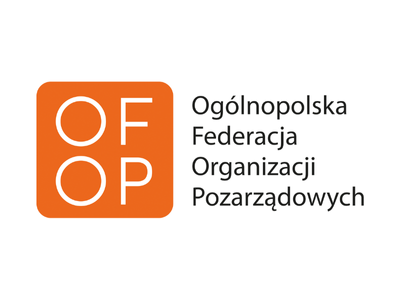
Civic Space Report 2025 – Out now!
Europe is experiencing a dangerous rollback of civic freedoms, in a context where the promise of universal rights and democratic values, enshrined in the EU treaties, is being steadily eroded by interconnected economic, social, cultural, and political factors.
In our latest Civic Space Report, we document an “unprecedented and intensified attack” on civil society and civic freedoms, including restrictions on protest rights, challenges to non-profit funding, and smear campaigns.
We call on EU and national leaders to take concrete actions to protect and expand the space for civil society, particularly in the context of a growing assault on democracy.
What is in the report?
The report is made up of a horizontal, EU-wide analysis, written by ECF, 16 country chapters and one regional Western Balkans analysis written by ECF members and partners on the ground.
What are the main findings?
A deliberate strategy to delegitimise civil society
Along with the rise of far-right, anti-democratic forces in several European countries, we have seen a deliberate strategy to delegitimise civil society, through harassment, smear campaigns, and restrictive legislation, including laws branding NGOs that receive funding from abroad as “foreign agents”. In Hungary, for example, the new Sovereignty Protection Office (SPO) is tasked with investigating and reporting on any organisations or individuals perceived as critical.
Meanwhile, MEPs from the European People’s Party (EPP) — the largest group in the European Parliament — have spread misinformation about EU funding programmes, in an apparent attempt undermine the EU’s funding of NGOs and restrict their ability to engage with policymakers — a key function of any non-profit organisation in a democracy. Compounding this, the decision of the Trump administration to freeze U.S. Agency for International Development (USAID) funds is having a significant impact on civil society in Europe.
Protest rights severely restricted; Palestine solidarity and environmental groups targeted
The report also covers the right to protest, documenting widespread violations of international human rights standards across Europe. In particular, demonstrations in solidarity with Palestine and for climate justice faced significant restrictions, including the use of excessive force by police, new restrictive legislation, and outright protest bans.
For example, police in Germany have repeatedly used disproportionate force against protesters, including minors, and banned solidarity protests.[2] In the Netherlands, Palestine solidarity actions — in particular student encampments — were met with restrictions including surveillance, excessive use of force and mass arrests, which were paired with politicians’ calls for more aggressive prosecution of protesters. Meanwhile, Italy’s new “Ecovandalism” law would impose fines of up to €60,000 and prison sentences of up to five years for defacing cultural sites.
International human rights law put into question as LGBTQI+ people, racialised groups, and migrants scapegoated
Governments in several member states have questioned the credibility and applicability of international human rights conventions. For example, in Denmark, a government minister argued that Denmark should not abide by rulings of the European Court of Human Rights, particularly on questions related to immigration. Prime Minister Mette Frederiksen said that while she does not intend to withdraw Denmark from the conventions, they should not be set in stone. Meanwhile, under the Meloni government in Italy, LGBTQI+ rights, migrant’s rights, and sexual and reproductive rights have faced serious attacks.
A wake-up call to EU leaders
We call on EU and national leaders to take concrete actions to protect and expand the space for civil society, particularly in the context of a growing assault on democracy.
Chapters
Click on the tiles below to read the different chapters!
Authors























The European Civic Forum is co-funded by the European Union. Views and opinions expressed are however those of the author(s) only and do not necessarily reflect those of the European Union or the granting authority. Neither the European Union nor the granting authority can be held responsible for them.
Civic Space Watch
Civic Space Watch is an online platform that gathers data and reports on developments in civic space at the national and EU level and analyses national and European trends in civic space.
Powered by the European Civic Forum, it collects findings through regular contact and interviews with a strong network of members and partners on the ground, as well as ongoing media and social media monitoring.




















